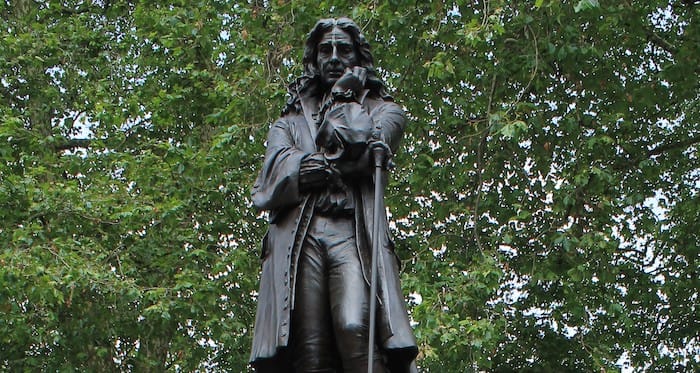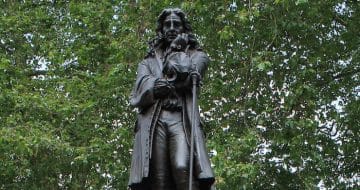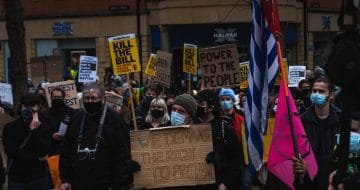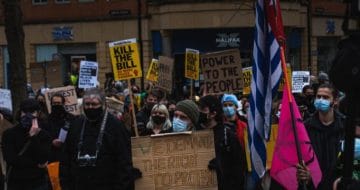Decision does not affect acquittal of Colston Four

Key human rights such as freedom of expression and assembly are no defence for those being prosecuted for causing “significant” damage to property during a protest, the Court of Appeal has said.
Lord Chief Justice Lord Burnett handed down the judgment in response to three issues raised by the then Attorney General Suella Braverman following the acquittal of four defendants (known as the Colston Four) for criminal damage in January.
The four protestors were on trial for tearing down and damaging the Grade II listed statue of Edward Colston during a peaceful Black Lives Matter protest in Bristol in June 2020. Colston has become a controversial figure in the city owing to his connections with the Royal Africa Company which transported African slaves to the West Indies and America.
The issues raised by the former Attorney General questioned whether Articles 9, 10 and 11 of the European Convention on Human Rights (ECHR) may be used as a defence for those being prosecuted for damaging property during a protest. This was one of the defences raised in the trial of the Colston Four.
The court concluded that “prosecution and conviction for causing significant damage to property during protest would fall outside the protection of the Convention either because the conduct in question was violent or not peaceful, alternatively (even if theoretically peaceful) prosecution and conviction would clearly be proportionate.”
Lord Burnett also stressed that this ruling had “no bearing on the acquittals” of the Colston Four in January. He indicated, however, that where the damage in question was “minor or temporary”, current Strasbourg case law suggests that these human rights defences would apply — though seeking to prosecute someone for such an act as “scrawling a message on a pavement using water soluble paint”, in his view, “might well be a disproportionate response”.
The decision is perhaps unsurprising given that earlier this year two of the judges deciding this case had ruled that for any offences arising out of non-violent protest, the prosecution need not prove that a conviction is a proportionate interference with a defendant’s rights under Article 10 and 11 of the ECHR.
Responding to the ruling, former Justice Minister and Tory peer tweeted that the Attorney General had “made a Reference — as was her legal right — and the Court agreed”, retweeting the KC and founder of the Good Law Project Jo Maugham’s comments from January appearing to criticise the move.
“Diasappointed” by the decision, Katy Watts, a lawyer for the human rights group Liberty which provided written submissions for the case, wrote. “Instead of continuing to heap protections on problematic statues, the government needs to uphold and protect people’s fundamental rights, especially when it comes to protest rights,” she said. Watts added that the effect of the decision is that “if the Colston Four were tried today, it is much more likely that they would be convicted”.
Raj Chada, partner at Hodge Jones & Allen, the London law firm which acted for the acquitted Colston Four, also said he was disappointed by the ruling, adding that “the statue is still on public display as a monument to the evils of the slave trade, not as an obscene glorification of a slave trader. It is a shame that this is the Attorney General’s focus rather than the multiple crises facing this country”.
Elsewhere, the government’s new Charities Act 2022 will provide museums with greater powers to dispose of objects where there is a compelling moral obligation to do so. This will have the effect of overriding a 2005 High Court ruling that prevented trustees of the British Museum from returning property based on a moral obligation.


